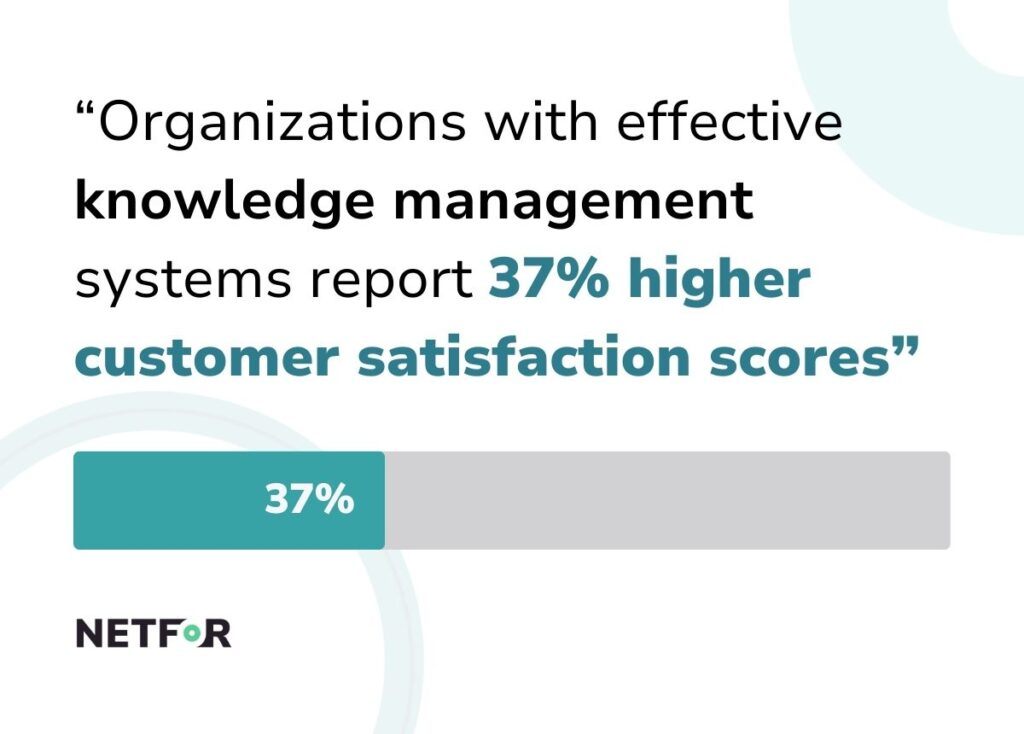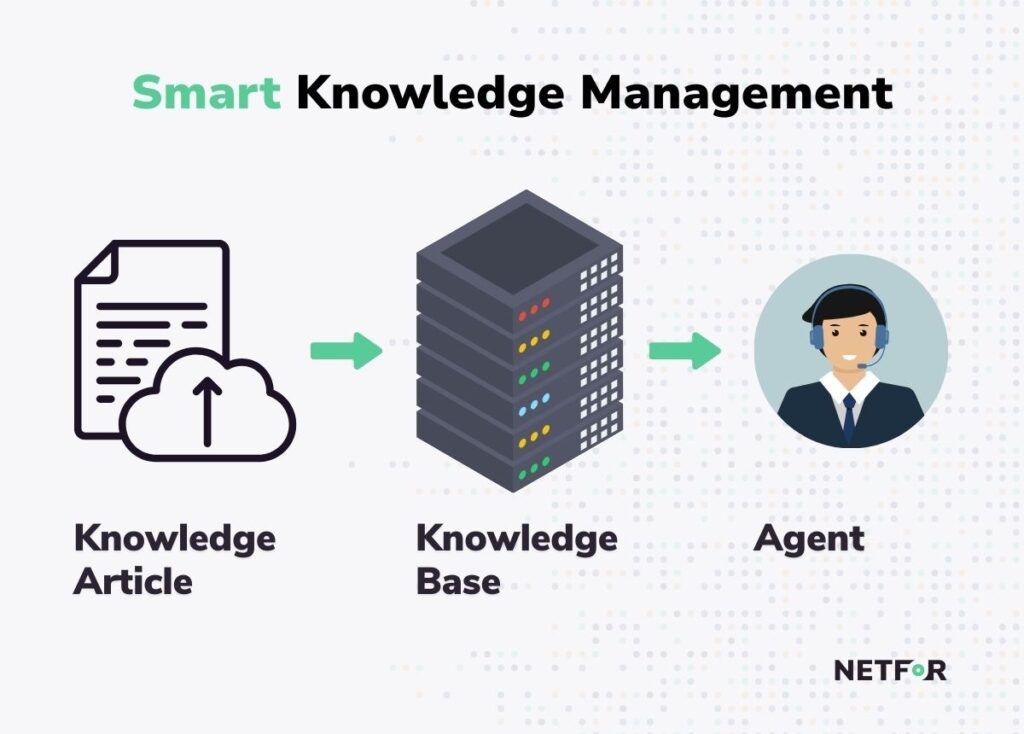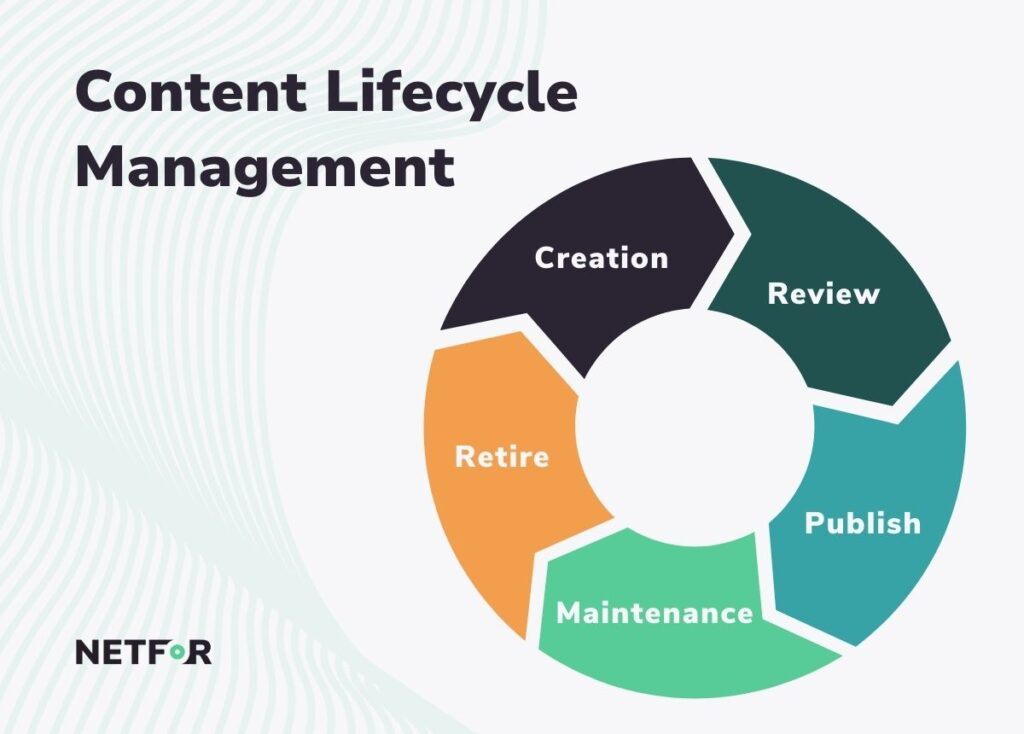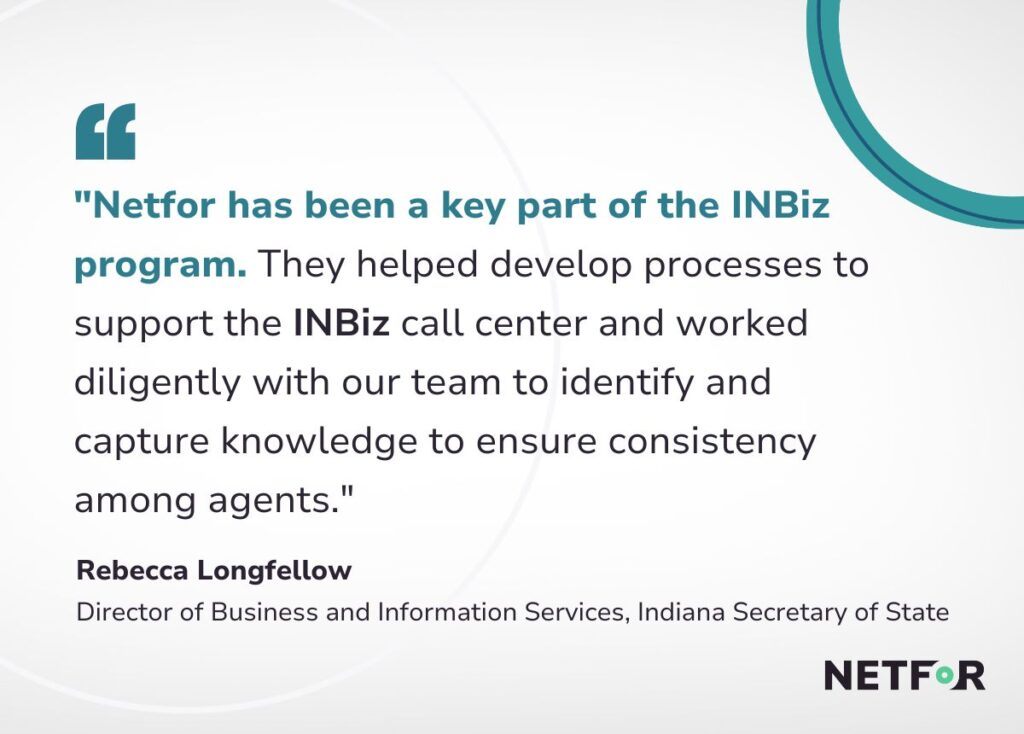Customer service excellence depends on one critical factor: How quickly and accurately your team can access the right information when it matters most. A robust customer service knowledge base is not just a digital filing cabinet. It is the strategic backbone that transforms average support interactions into exceptional customer experiences across IT Help Desk, Contact Center, and Call Center operations. Without it, your agents might as well be shuffling through a stack of sticky notes on an IT manager’s computer, hoping the answer is hidden somewhere between “restart the router” and “weekend grocery list”.
Yet too many organizations continue to struggle with common issues that undermine service quality:
- Fragmented information systems that scatter critical knowledge across multiple locations
- Outdated documentation that leaves agents working with inaccurate or incomplete information
- Inconsistent service delivery that frustrates customers and erodes trust
Without a centralized customer service knowledge management system, support agents waste valuable time searching for solutions while customers wait, resulting in longer handle times, inconsistent answers, and diminished customer confidence.
The solution lies in transforming how knowledge flows through your organization. Netfor’s proprietary, AI-enhanced knowledge base, powered by our Real Time Interaction Guidance (RTIG) tool, empowers agents to resolve issues faster, deliver consistent information across all channels, and achieve industry-leading First Call Resolution (FCR) rates. With proven governance processes, expert technical writing capabilities, and measurable performance improvements, it represents a comprehensive solution for businesses that demand reliability, scalability, and results.
What Is a Customer Service Knowledge Base?
A customer service knowledge base is a centralized digital repository that stores, organizes, and delivers critical information to support teams and customers. More than just a collection of documents, it serves as the intelligent backbone of modern IT Help Desk, Contact Center, and Call Center operations, providing instant access to solutions, procedures, and expert guidance.
Defining the Role in IT Help Desk, Contact Center, and Call Center Operations
The strategic value of a well-structured help desk knowledge base becomes clear when considering customer expectations. Research shows that 91% of customers say they would use an online knowledge base if it were available and tailored to their needs. This preference for accessible information, combined with the operational efficiency gains for support teams, makes comprehensive knowledge management essential for competitive operations.
For IT Help Desk teams, a knowledge base provides technical troubleshooting guides, system documentation, and escalation procedures. Contact Centers rely on it for product information, service protocols, and customer interaction scripts. Call Centers use it to maintain consistency across high-volume operations while reducing Average Handle Time (AHT).
The challenge many organizations face is achieving world-class FCR performance. While industry benchmarks show that world-class FCR sits at 80% or higher, only 5% of call centers achieve this standard. A properly implemented customer service knowledge management system can bridge this gap by ensuring agents have immediate access to proven solutions.
Customer Service Knowledge Management vs. Customer Service Knowledge Management Systems
Understanding the distinction between knowledge management and knowledge management systems proves crucial for implementation success.
Customer service knowledge management refers to the strategic approach, processes, and governance structures that guide how information is created, maintained, and utilized. It encompasses content lifecycle management, quality assurance protocols, and organizational policies.
Customer service knowledge management systems, by contrast, are the technological platforms and tools that enable this strategic approach. These systems provide the infrastructure for storing, searching, and delivering information through features like AI-powered search, automated content tagging, and omnichannel accessibility.
Successful organizations recognize that technology alone cannot solve knowledge challenges. Effective knowledge management requires both robust systems and disciplined processes working in harmony.
Internal Agent Knowledge Bases vs. Customer Self-Service Portals
Modern knowledge ecosystems typically operate on two complementary levels. Internal agent-facing knowledge bases provide comprehensive information designed for support professionals, including detailed troubleshooting procedures, escalation paths, and technical specifications. These systems prioritize depth and accuracy to enable complex problem resolution.
Customer self-service portals, drawn from the same knowledge foundation, present information in user-friendly formats optimized for non-technical audiences. These portals can reduce ticket volume by 25% through effective self-service options, with AI-enhanced versions achieving up to 35% deflection rates.
The key to success lies in maintaining content consistency between these channels while adapting presentation for each audience’s needs and technical expertise levels.
Why a Customer Service Knowledge Base Is Critical to Business Performance
The business impact of effective knowledge management extends far beyond simple information storage. Organizations that invest in comprehensive customer service knowledge bases see measurable improvements across every critical support metric, from operational efficiency to customer satisfaction.
Impact on First Call Resolution (FCR), Average Handle Time (AHT), and Customer Satisfaction (CSAT)
First Call Resolution represents the gold standard of customer service efficiency. When agents can quickly locate accurate information, they resolve issues faster and with greater confidence. This improvement typically translates to a 15-25% reduction in Average Handle Time while simultaneously increasing customer satisfaction.
Organizations with effective knowledge management systems report 37% higher customer satisfaction scores compared to those relying on fragmented information sources. This improvement stems from consistent service delivery, faster resolution times, and the confidence that comes from well-informed support interactions.

Ticket Deflection and Self-Service Adoption Rates
Self-service capabilities represent one of the most significant opportunities for operational improvement. Modern customers prefer to resolve issues independently. 67% explicitly state they prefer self-service over speaking with a representative. A well-structured knowledge base enables this preference while reducing operational costs.
Customer Service Skills Enhanced Through Knowledge Management
A comprehensive knowledge base serves as a force multiplier for customer service skills across your organization. New agents can achieve competency faster when they have access to structured learning materials and proven resolution procedures. Experienced agents benefit from consistent information that supports complex troubleshooting scenarios.
The democratization of knowledge through centralized systems ensures that institutional expertise doesn’t remain siloed with individual team members. Instead, best practices and specialized knowledge become accessible to the entire support organization, elevating overall service quality.
Inside Netfor’s Help Desk Knowledge Base and AI-Driven Knowledge Management
Netfor’s approach to knowledge management combines proprietary technology with proven governance processes to deliver measurable results. Our system goes beyond traditional information storage to create an intelligent support environment that actively assists agents during customer interactions.

Proprietary Platform Features and Omnichannel Access
Our customer service knowledge management system provides seamless access across all communication channels: phone, email, chat, SMS, and emerging platforms. This omnichannel approach ensures that agents maintain consistent service quality regardless of how customers choose to engage.
The platform’s search capabilities utilize advanced keyword matching and contextual understanding to surface relevant information quickly. AI-driven recommendations proactively suggest articles based on interaction context, reducing the time agents spend searching for solutions.
Built with customization in mind, our platform adapts to each client’s unique terminology, processes, and brand voice. This flexibility ensures that knowledge content aligns perfectly with organizational needs and customer expectations.
Real Time Interaction Guidance (RTIG) for Live Agent Support
Our Real Time Interaction Guidance (RTIG) tool represents the cutting edge of AI-enhanced customer service knowledge management. This system performs real-time sentiment analysis during customer interactions, providing agents with immediate insights into customer emotional state and satisfaction levels.
RTIG’s keyword-triggered article surfacing automatically identifies relevant knowledge content based on conversation context. As customers describe their issues, the system instantly presents applicable solutions and troubleshooting procedures, enabling faster and more accurate resolutions.
Combining sentiment analysis and contextual content delivery creates a support environment where agents can respond proactively to customer needs while maintaining access to comprehensive solution databases.
Agile Governance and Quality Assurance Processes
Great knowledge management starts with content that’s clear, accurate, and easy to trust. During onboarding we make sure every client has a strong foundation by:
- Setting clear content standards together
- Building review schedules so information never goes stale
- Defining simple performance metrics to track success
From there, our in-house Technical Writers roll up their sleeves and work side-by-side with clients to:
- Create knowledge articles tailored to real operational needs
- Match content to each client’s brand voice and style
- Keep everything consistent so agents and customers always get the same reliable answer
Quality assurance occurs through regular call audits, performance monitoring and agent scorecards. We track article usage patterns, resolution success rates, and customer feedback to identify content gaps and improvement opportunities. This data-driven approach to content management ensures that our knowledge base evolves continuously to meet changing needs.
Contact Center Knowledge Base Best Practices from Industry Leaders
Implementing a world-class contact center knowledge base requires more than technology, it demands a strategic approach to content creation, governance, and continuous improvement. Industry leaders have identified specific practices that separate high-performing systems from average implementations.
Structuring and Maintaining High-Quality Content
Content structure forms the foundation of usability in any customer service knowledge base. Articles should be organized around customer intent rather than internal departmental divisions. This approach ensures that information architecture matches how support agents and customers naturally think about problems and solutions.
Effective content follows clear formatting standards:
- Concise titles that reflect common search terms
- Bullet-pointed procedures for easy scanning
- Highlighted key information.
Technical jargon should be minimized or clearly defined to ensure accessibility across different skill levels.
Regular content audits identify outdated information, redundant articles, and coverage gaps. Leading organizations establish review schedules based on content type and update frequency requirements, ensuring that critical information remains current and accurate.
Governance Models and Content Lifecycle Management
Successful knowledge management requires clearly defined roles and responsibilities throughout the content lifecycle. This includes designated content owners for different subject areas, established review and approval processes, and systematic procedures for retiring outdated information.
Forrester research emphasizes the importance of moving from static repositories to intelligent, interconnected knowledge graphs. This evolution requires governance structures that support dynamic content relationships and automated content suggestions based on user behavior and resolution success rates.
Content Lifecycle Management is the structured process that governs knowledge content from start to finish. It includes the phases of creation, review, publication, maintenance, and retirement. Each phase is guided by clear criteria, assigned responsibilities, and quality checkpoints to ensure all materials remain accurate, consistent, and reliable over time.

Ensuring Agent Adoption Through Training and Feedback Loops
The most comprehensive help desk knowledge base delivers no value if agents don’t use it effectively. Successful implementation requires dedicated training programs that teach both content navigation and effective search techniques. Netfor’s proprietary Learning Management System (LMS) provides customized training materials that ensure agents can maximize the value of knowledge resources.
Feedback mechanisms enable continuous improvement by capturing agent insights about content usefulness and identifying knowledge gaps. This input drives content priorities and helps maintain relevance as business needs evolve.
Performance metrics should track not just content usage but resolution success rates, ensuring that knowledge base effectiveness translates to improved customer outcomes.
The Future of Knowledge Management in Customer Service
Knowledge management continues to evolve, shaped by smarter tools and rising customer expectations. While many vendors are racing toward complex AI models, the real value often comes from using AI in focused, practical ways.
At Netfor, we apply AI where it matters most:
- Article identification: Helping agents quickly surface the right knowledge in the moment using RTIG.
- Content development support: Suggesting updates and assisting with draft creation so information stays fresh
These targeted uses of AI reduce manual effort and ensure content remains accurate and easy to find. Rather than replacing the human touch, our approach to AI simply makes knowledge bases faster, smarter, and more reliable, keeping customer service agents focused on what they do best: delivering exceptional support.
Why Netfor Is the Right Partner for Your Knowledge Management Needs
Selecting the right knowledge management partner requires evaluating both technological capabilities and implementation expertise. Netfor combines proprietary AI tools with proven governance processes to deliver measurable improvements in customer service operations.
Proven Results in FCR, AHT, and CSAT Improvements
Our track record demonstrates the effectiveness of our approach. In our work with a global retailer, we achieved an 18-percentage-point improvement in First Call Resolution, moving from 63.9% to 81.9% over six months. This improvement directly translated to reduced customer wait times, fewer escalations, and improved customer satisfaction.
Netfor maintains service level agreements that reflect our commitment to excellence: 97% of calls answered in under 20 seconds. This performance standard is possible only through the combination of efficient knowledge systems and well-trained support teams.
Our approach to customer service knowledge management consistently delivers CSAT improvements through faster resolution times, more consistent information delivery, and reduced customer effort across all interaction channels.
Scalable Solutions for IT Help Desks and Contact Centers
Scalability remains a critical consideration as organizations grow and evolve. Our proprietary platform adapts to changing business requirements while maintaining performance and usability standards. Whether supporting a single help desk or multiple contact centers across different regions, our system provides consistent functionality and user experience.
Our agile content development methodology ensures that knowledge bases can expand rapidly to support new products, services, or operational procedures. This flexibility proves essential for organizations experiencing rapid growth or frequent changes in their service offerings.
Partnering for Long-Term Success in Customer Service Operations
Sustained success hinges not just on initial implementation, but on continuous optimization and evolution. Netfor provides continuous monitoring, regular content audits, and performance analysis to ensure that knowledge management systems deliver sustained value.
Our dedicated Technical Account Management approach ensures that each client receives personalized attention and strategic guidance. This relationship-based model enables proactive identification of improvement opportunities and alignment with evolving business objectives.

Transform Your Customer Service Operations Today
The competitive landscape demands excellence in customer service delivery. Organizations that invest in comprehensive knowledge management systems position themselves to exceed customer expectations while achieving operational efficiency gains that directly impact profitability.
A robust knowledge base is a foundational driver of customer service excellence. Netfor’s AI-powered, governance-driven system delivers measurable improvements in FCR, AHT, CSAT, and scalability. Organizations that invest in advanced knowledge management not only improve operational metrics but also strengthen customer trust and retention.
Discover how Netfor can transform your customer service operations with a powerful knowledge management system. Contact us today to get started and experience the difference that strategic knowledge management can make for your organization.

